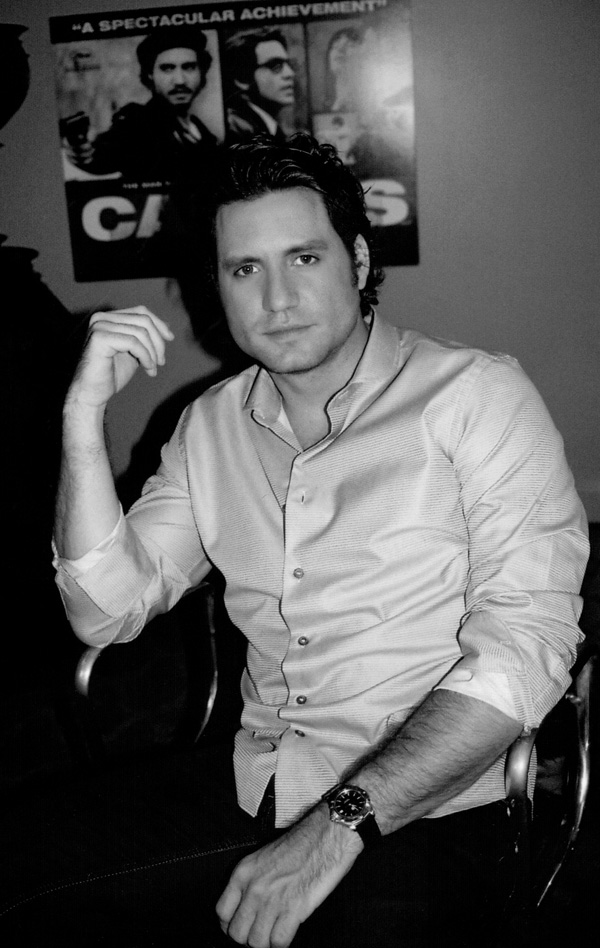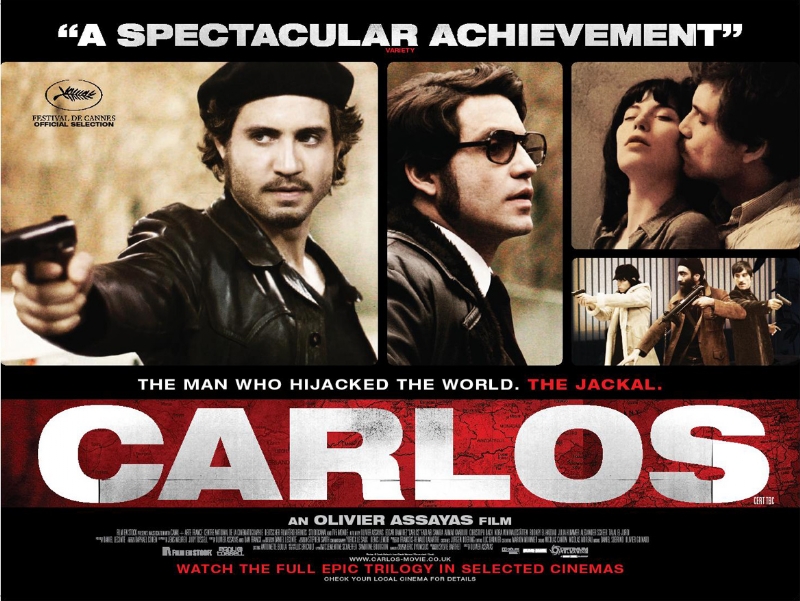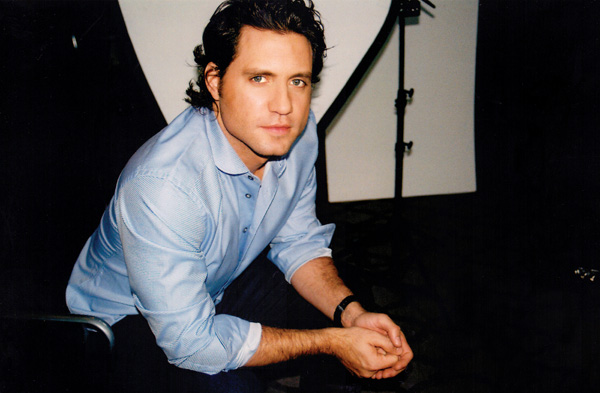Édgar Ramírez EXCLUSIVE preview
Rarely can it be said that a film has defined a genre, but never is that more true than in the case of Carlos.
With many diverse-yet-interconnected stories, strong performances, solid directing, and a tightly-plotted script that all contribute to Carlos‘s great success. Ramírez portrays a carefully crafted Carlos and has moulded him into a distinct and complex individual.
Every aspect of life in those turbulent times is faithfully recreated with great accuracy. Carlos is a credit to all involved, and a recommendation for all to witness – FAULT Film
FAULT Magazine had the pleasure of talking to the masterful star of Carlos, Édgar Ramírez in London last week, you can see his full interview in the Winter edition of FAULT coming soon…
.
.
FAULT: What were your initial thoughts when you were handed a script of almost 300 pages?
Edgar: My first reaction was to take a deep breath and dive into the water. I was going to be playing 25 years in the life of this guy. Of course everyone knew what was going to be required and knew it was going to be a long shoot. What made me so confident in the choice that I was making was the fact that when I received the script I read it all in one go. I started reading the script at 8pm one night and intended to read the first part. However once I started I had to keep going, I must have finished around 5am the following day. The story grabbed me by the collar and wouldn’t let me go, for me that was the perfect sign. I loved the story and I didn’t care that it was going to take up a whole year of my life. I had to be a part of it.
FAULT: There was a lot of physical and mental training involved with the character of Carlos, how did you prepare for the part?
Edgar: Firstly I trained a lot. One thing that was made clear to me about this character was the fact that I or he has to go through major, physical transformations from the beginning to the end. For the character I had to lose weight first. I had to lose around 12cm of waist. I lost over 2 sizes before the film even started and had to turn back into a 23 year old boy. I had to train very hard, about 3 hours a day. It was interesting to get to a weight and build a body that this character required. It was important to show this young guy, crisp, athletic, handsome, dressed beautifully and full of dreams. Once I was at the stage of a 23 year old, we then aged him accordingly.
FAULT: What other research was involved?
Edgar: There were matters that I didn’t want to just imagine, as an actor and a journalist I wanted to collect as much information as possible. I read as much contemporary history as possible to understand the political context and the historical context of the time that this character has lived in. I also read as much as I could about the media image of Carlos because Carlos himself was already a character before this movie and all of the books. Carlos is an image, he is a fabrication produced by the guy who is in jail Ilich Ramírez Sánchez but also by the media at the time, the secret services, the governments and the radical groups. It was all a fabrication so I wanted to research how he was perceived by the media and by all the different authors. Then finally I talked to his family and his lovers to get a different angle that you could never get from reading articles.
.
.
FAULT: How closely did you work Olivier Assayas? Did you have creative input with the character of Carlos?
Edgar: Absolutely. Olivier was very open from the start. We had a lot of freedom with this movie. I can’t recall Olivier ever telling me to shoot the scene this way or that way, he allowed himself to be surprised with what the cast could bring to the table. It’s strange because this movie was a total happening. We never sat down and discussed the characters for hours on end, because there wasn’t enough time. We all let go and we completely trusted our director and Olivier trusted his cast. We would turn up on set, Olivier would give us very specific directions on how he wants the scene to look and where the camera will be and then go! Let’s do it! It was very rock n roll. There is nothing glamorous about this movie. It is very raw, very up front, it’s like boom! In your face and that is what it was like while shooting the movie.
FAULT: What is your personal opinion of Carlos?
Edgar: Before I made the movie I didn’t know that much, I just knew the myth of Carlos. After shooting the movie I have to be honest, I am still confused. I don’t think anyone will ever know the truth. It’s very hard to form an opinion on this guy. I think he was very convinced of everything. In fact I will give you my opinion of the guy we portrayed in the movie because that is the one I know, or at least I think I know. I think he was convinced of everything he believed in through different periods of his life. I think he had different faces and different approaches to each situation that he had to go through. He would use those faces and masks constantly morphing to fit into his new environment. I can have an opinion of him in 1983 but then 3 years later he was someone else.
FAULT: You majored in journalism, have you always been aware of political warfare?
Edgar: You only have to look around to be aware of political warfare. I was a victim of terrorism myself when I was a young boy in Colombia. I was six years old when I would go to school and there would be like 6 bomb threats every year or every 6 months, I would go to school not knowing if I would see my mother in the afternoons. I think this is why I wanted to explore the humanity of a character like Carlos. Our craft as actors should be at the surface of the character and not the other way around. I don’t express myself politically or ideologically though my characters. They are not my identity I am my own identity. A dramatic movie should be about precisely that, about exploring human nature in an honest, open way and not apposing your own ideas and your own conceptions about the world to your character or to your stories. This character was so fascinating, full of complications, traits, he had so many layers. It was very complicated to identify him in one way or another. Yes, he was a terrorist to some people but a freedom fighter for others and those labels are so extreme. It was so interesting to explore what lies in between those labels. From the womanizer to the misogynist he could be both at the same time. He had all these girls that were crazy about him but what lies underneath, what’s the deal?
FAULT: How intense was it filming for 7 months? What did you do to unwind after filming had finished?
Edgar: I went through therapy, not a psychiatrist, just to make it clear. I was a wreck, I was totally exhausted and depressed and I just needed certain help to wash off those emotions. I think that the emotions that you induce for the purpose to portraying a specific character are you own emotions. Towards the end of the movie this guy is paranoid, he’s cornered, he’s in a place that he hates, he’s leading a life that he despises, he’s taking drugs, anti depressants with alcohol and I had to induce that state of mind for the purpose of the character. When I finished the movie and I wanted to go back to my normal life but I was physically and emotionally suffering. I never went home for 7 months, I was working 16/17 hours a day being Carlos and having 4/5 hours sleep. I actually went to a party, I had to excuse myself to go to the bathroom and cry! I was like “why am I crying!?” I didn’t understand what the fuck was going on.
.
.
FAULT: Carlos has been described as a political film, a period film and a gangster film. What category would you put the film in, if any?
Edgar: I think one of the most interesting things about this movie is that it is very hard to categorize into one genre. Olivier is a very smart director to put together different genres but without any conflict and without being too complex, it’s like Carlos himself. The only thing I don’t believe the movie is is that it’s political. I think it’s a movie about politics as politics are part of the context of the movie. We were not trying to set up or convey a specific message. It’s not even a movie about terrorism. It’s about a guy who happened to orbit who, lived and operated in the world of terrorism. If you look closely, and I believe you’ll agree with me, it’s about human emotion and human experiences. At the end, it is a movie about choices and the consequences you have to face by the choices that you make in life. Carlos is driven by impulse and narcissistic obsession for recognition and fame. He would do all kinds of extreme things. The movie is practically about the struggle between idealism and individualism. All of this was laced with fear, power, greed, money, love, sex which are elements which speak to all of us somehow.
FAULT: What is your FAULT?
Edgar: That’s a good question. I am very happy that my body responded to the exercising diets that I had to go through after filming because I love sweet stuff! Thank god genetics are on my side because otherwise I would have stayed fat. The only fun thing about putting on weight was that I could each as much sweet stuff as I could. I can cut the pasta but I can’t cut the cakes, sweets and chocolate, that’s my FAULT.


